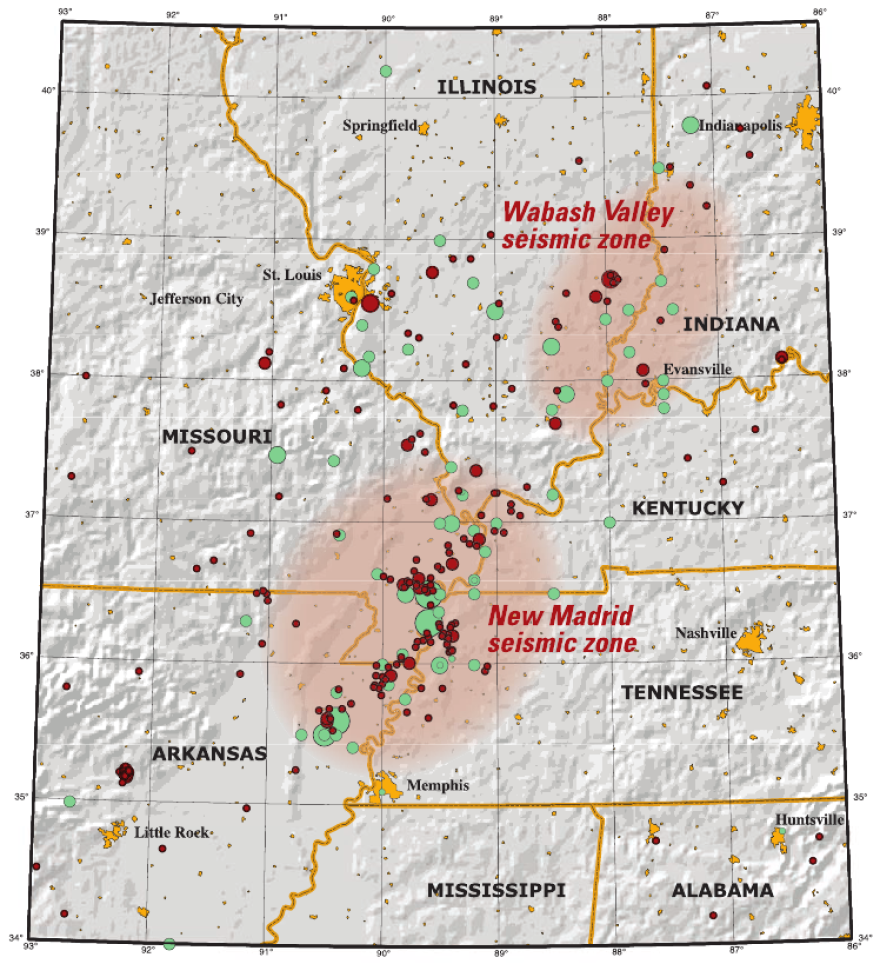In the wake of recent activity near the New Madrid Seismic Zone, Illinois’ Emergency Management Agency is urging participation in an earthquake drill scheduled for Thursday.
It’s known as the Great ShakeOut, an annual exercise meant to raise awareness about the possibility of earthquakes in areas where they’re most likely to happen.
Despite not being located near a large fault line such as those in California, Illinois is at risk. A series of small quakes have been felt along the New Madrid Fault recently as last week; that runs from far southern Illinois to the south and west. In 2008, a 5.4 magnitude quake stemmed from the Wabash Valley Seismic Zone along the border of southeast Illinois and southwest Indiana.
Both zones are areas of concern for scientists at the United States Geological Survey, or USGS.
Cassie Ringsdorf is a spokesperson for the Federal Emergency Management Agency. She said there’s no room for complacency in Illinois.
“We want people to just think about what the safety is in their homes, where they work, where they go to school, and what they would do to protect themselves if something were to happen," she said.
There is up to a 40 percent chance for a major earthquake in Illinois according to FEMA. Ringsdorf said residents should take that seriously.
“Ultimately, there’s a risk," she explained. "I don’t think we would necessarily tell anybody it’s a low risk, high risk, medium risk; risk is risk. From our perspective, we want everyone in Illinois to be aware of what that risk looks like.”
The upcoming Great ShakeOut drill will remind residents to drop, cover, and hold on if an earthquake strikes. FEMA says about three million people have signed up to take part.
Officials encourage residents who live near Illinois' major seismic zones to move heavy objects from open areas to prevent them from moving in the event of a quake. Earthquake injuries are typically caused by loose objects that are tossed around as the earth shakes.





